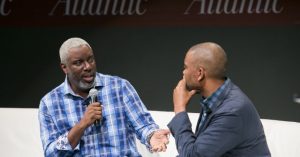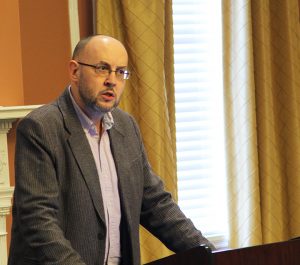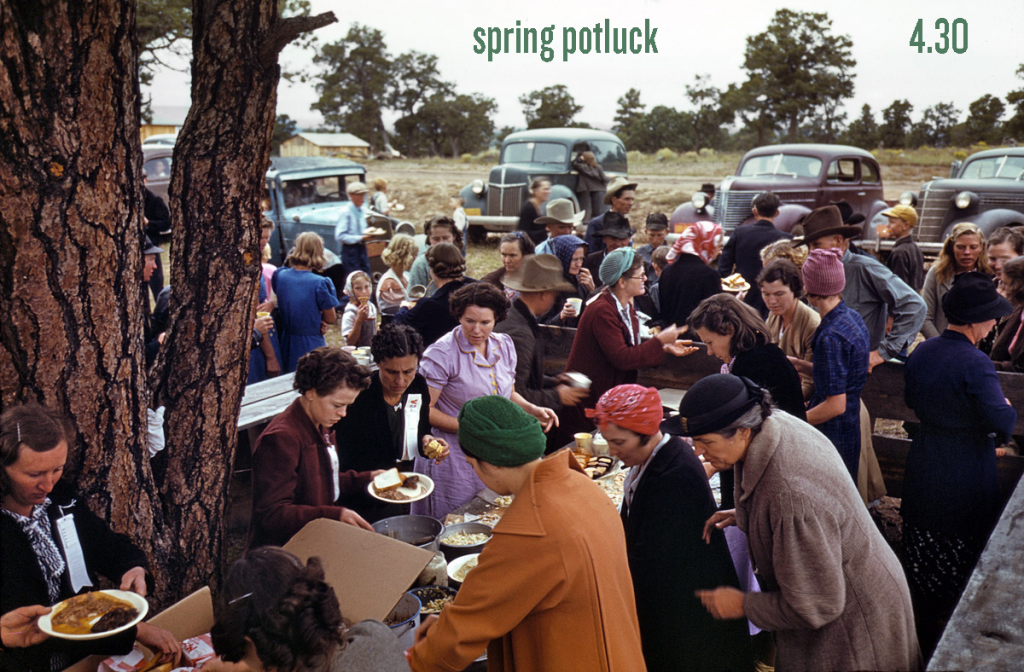Regroup or Redouble? – Pastoral Backstory – March 23rd, 2017

March 23rd, 2017
 We dedicated this space last week to talk of justice (as a prelude to hearing what the Preacher of Ecclesiastes had to say). Where does such a monumental mandate start to play out in the “minute particulars?”
We dedicated this space last week to talk of justice (as a prelude to hearing what the Preacher of Ecclesiastes had to say). Where does such a monumental mandate start to play out in the “minute particulars?”
A recent conference sponsored by The Front Porch (of which Rev. Anyabwile is a central player) brought together several wise minds to offer some preliminary but concrete next steps in the church’s efforts in support of a more just society (HT: Debby Comer). Click on the link below and enter your email address to gain access to the three days’ worth of panel discussions.
One discussion you might review relates to some of what came up in our ensuing Q&A last Sunday. It takes up the issue of whether there’s sufficient compatibility in a partnership between Christians and secular organizations in justice work. You’ll find that conversation on the March 16th, 3:35pm slot.

A conference like that has everything to do with how Christians might engage culture and politics with wisdom. But what about those who believe both these (and other) arenas are too far gone for Christians to think they can offer appreciable assistance–or moreover, who think many Christians are themselves too compromised to offer anything helpful?
Alan Jacobs writes over at First Things about his friend and colleague, Rod Dreher’s book that summarizes years of articles and interviews on what Dreher calls _The Benedict Optio_n. (We’ve referred to it recently and often. Even in our Intro to CtK material–more on that momentarily).
about his friend and colleague, Rod Dreher’s book that summarizes years of articles and interviews on what Dreher calls _The Benedict Optio_n. (We’ve referred to it recently and often. Even in our Intro to CtK material–more on that momentarily).
As you may remember Dreher views current circumstances in the West as nothing less than cultural upheaval. And too many Christians, he concludes, are ill-equipped to respond to those changes apart from the temptation either to despair or assimilation. So to recover a spiritual and communal fortitude he argues for a strategic withdrawal from culture, politics, and various other structures and associations he thinks only serve to impede or subvert Christian formation. He looks to the example of St Benedict as a workable and now essential model of spiritual renovation. Recovering ancient spiritual practices, he argues, is key to rediscovering a uniquely Christian identity which would then furnish the church with new clarity and courage to engage its world(s).
With the call to cloister in order to regroup, Dreher has naturally sparked a great deal of push-back from a number of Christian thinkers. Many reviews of his book (for instance, Elisabeth Breunig’s, or better Jamie Smith’s) are bewildered by what they consider to be an alarmist view of current conditions–one that then irresponsibly justifies a retreat from cultural and political life.

Jacobs writes first of all to respond to what he thinks is his friend’s overwrought diagnosis and prescription. To insist that the only way forward is to escape is to fail to consider the particularities of any given context or family; each situation calls for its own tailored approach to ensure both nurture and faithfulness. Measured withdrawal under some circumstances may be in order, as well as persevering engagement in others. Jacobs would prefer his friend offered a more modest proposal.

Travis Taylor | Lariat Photographer
But Jacobs, to some extent, also comes to Dreher’s defense against his detractors, specifically regarding their assumptions that Christians both defy and defile their identity by the sort of disengagement Benedict encourages. Here, too, Jacobs finds an untenable assumption that the only way of Christian faithfulness is through political participation. If cultures are cultivated by far more than governmental affairs, then surely there’s room for pivoting from politics to any number of domains without sacrificing a gospel-centered ethic.
Both Dreher and his critics, Jacobs argues, fail to recognize how needful the whole church is for both those who retreat to pray and those who engage to bring influence. For some a season of, or some version of, a Benedictine intentionality to interior and communal practices would serve to re-center and renovate them for a new sort of participation in the world. For others an unqualified moratorium from public or political life would deprive the world of their helpful and needed presence. On that count we note that Jacobs doesn’t end without appealing to one who’s given our own church a controlling principle for how to think of our reasons for being:
_…James Davison Hunter has rightly said that Christians in general should strive for “faithful presence” in the public world, and there are, sad to say, multiple ways to fail at this task. One can spend so much time focusing on one’s faithfulness that one forgets to be present, or be sufficiently content with mere presence that one forgets the challenge of genuine faithfulness. It is also possible to conceive of “presence” too narrowly: again, I would contend that the hermit who prays ceaselessly for peace and justice is present in the world to an extent that few of the rest of us will ever achieve. But that said, and all my other caveats registered, I suspect that if American Christians have a general inclination, it is towards thinking that presence itself is sufficient, which causes us to neglect the difficult disciplines of genuine Christian faithfulness_.
Jacobs refers to how the church must strike that proper balance of being both attentive and responsive to one’s relationship with God (faithfulness) and also attentive and responsive to one’s particular world(s) (presence). We haven’t tended to cast those two words as if two halves of an integrated effort, but it is just another helpful way of reminding us that there is no true faithful presence apart from attention to all three of its dimensions–to God, to one another, and to our world(s).
We also believe that while faithful presence is the mandate of every individual believer, it is only possible when that individual is in community. Jacobs concurs:
…if you are a Christian who is called to life “in the midst,” in the world, you would do well to find ways to turn regularly inward, towards the traditional ways and means of the Christian faith by which you may regularly renew yourself, lest you end up being not just in the world but also of it. And if you are called to a “community of virtue,” you would do well to find ways to face outward, towards mission, towards the saeculum for the salvation of whose people Christ came. An intentional Christian community is not a sacrament, but is like the sacraments insofar as it hopes to be an outward and visible sign of an inner and invisible grace. [emphasis mine]
Did anyone say intentional Christian community? It just “so happens” we’re hosting our next Intro to CtK beginning this Sunday during 2nd hour in the library. It’s all about what membership in our community looks like. Click on the link below if you want to know more. Email our administrative assistant, Glenn Machlan, if you’d like to know more or want to register
http://us8.campaign-archive2.com/?u=e2dd8eae4ba7be9e17aa31202&id=a8968e2104&e=[UNIQID]
And since we’ve been wrestling with Calvin’s Institutes this year (and will again this Sunday!), what has the sometimes irascible but always thoughtful reformer to say about the church?
Because of present intention to speak of the visible Church, let us learn, if only from her title of mother, how much the knowledge of this same is useful, and indeed necessary; seeing that there is no entering into the life everlasting unless we are conceived in the womb of that mother and she gives birth to us, feeds us… For our weakness does not allow of our being withdrawn from school until we have been pupils for the whole course of our lives. It is also to be noted that outside the bosom of the Church one can hope for no remission of sins nor any salvation. (4.1.4)
Speaking of Calvin, here’s a little offer from the folks at Renewing Your Mind: a small volume of his writings, free for those who take them up on it by Friday. Hurry! (HT: Debby Comer)
https://gift.renewingyourmind.org/183/little-book-christian-life/offer
Finally, guess what’s coming in April?
